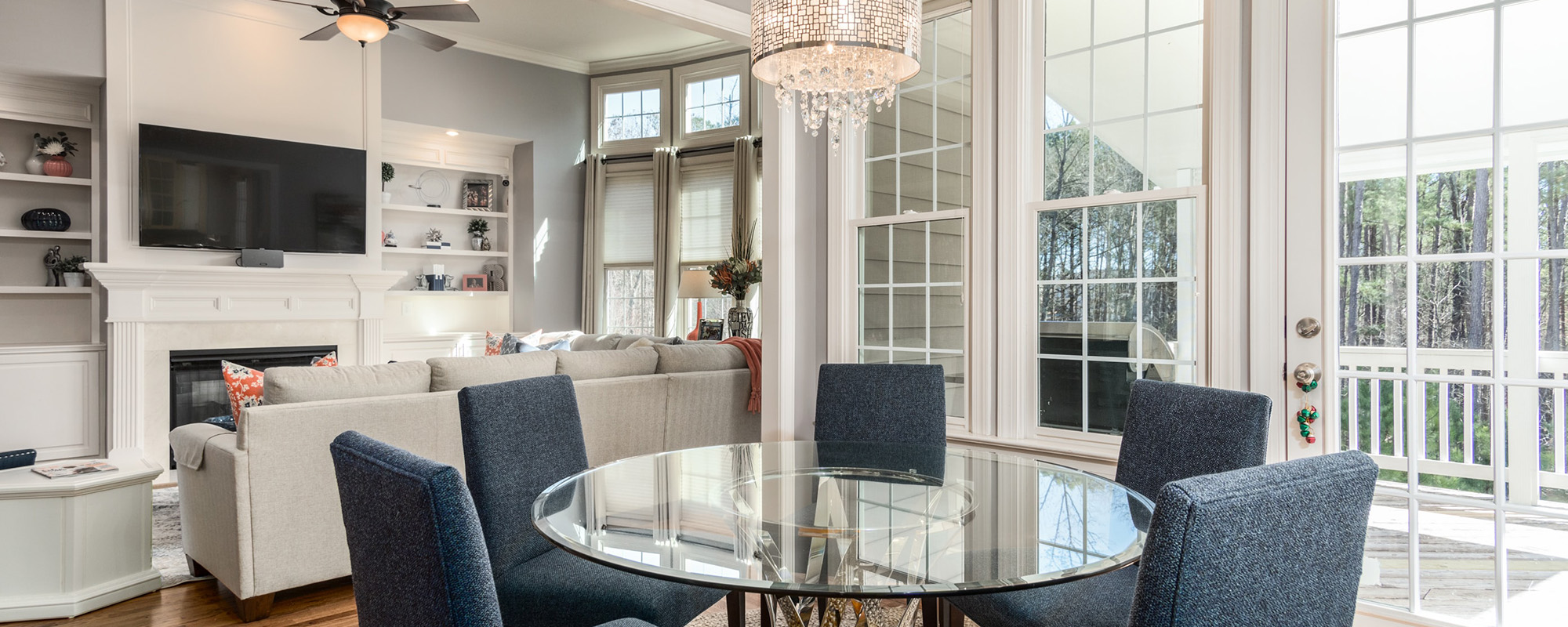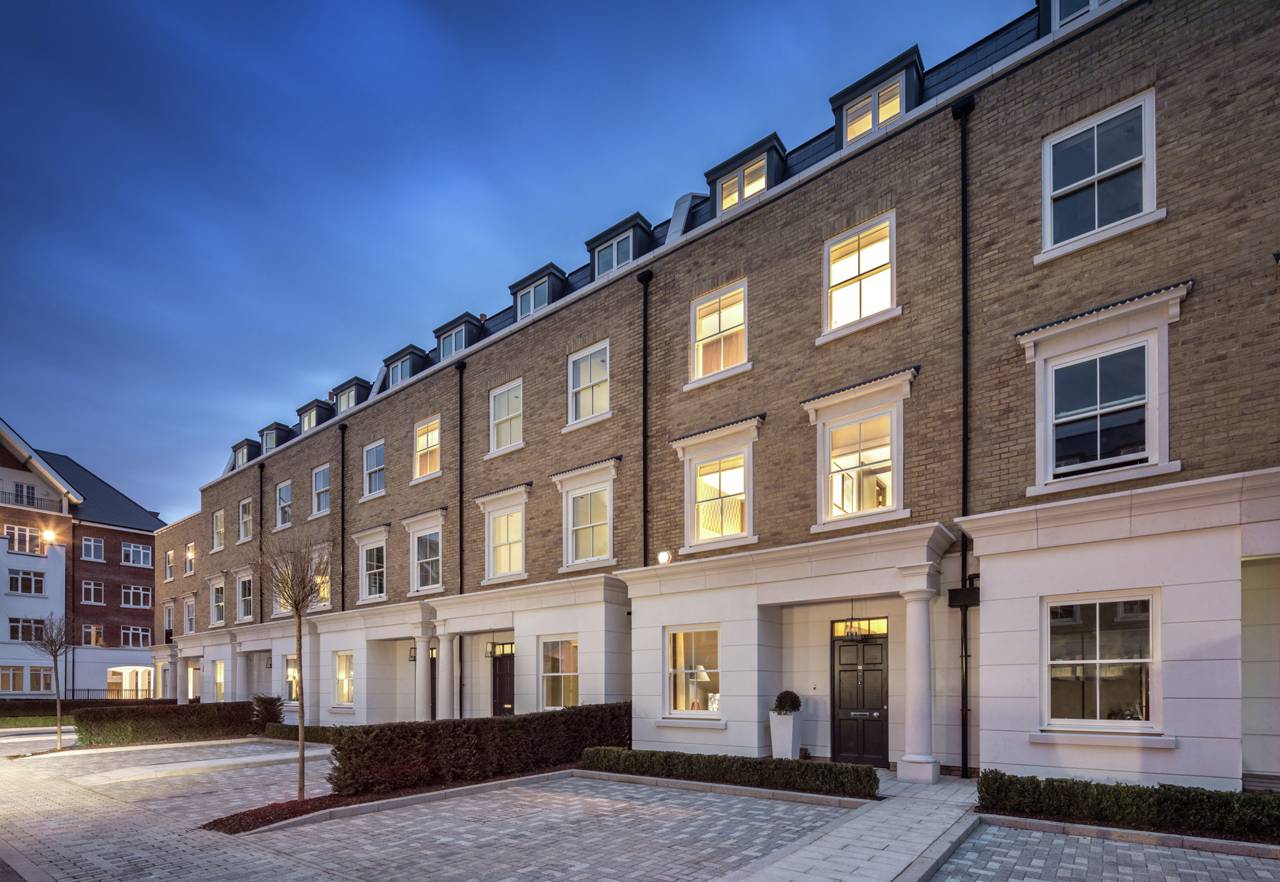Having financial protection in place for you, your family and your home gives you peace of mind that you’re covered for any potential issues. Insurance is something that is often overlooked or pushed lower down the list of things to deal with as an additional expense. However, when you own a property and have a mortgage, it’s best not to leave your finances to chance. You may be in good health right now and have a steady income but circumstances can, unfortunately, change at any point.
Now is the time to arrange your insurance, to make sure that you’re prepared should anything change with your health and finances. Think about what would happen if you suddenly became seriously ill and were unable to work. What about if you were suddenly made redundant? How would you be able to pay for damage caused to your home and its contents if there was a fire? Where would you find the money to cover your mortgage payments? How would you pay for your normal living expenses without any income coming in?
At Trinity Finance, we work closely with reputable insurance providers to give you the right cover for your needs. We offer a wide range of financial protection services to cover everything from your home, health, life and family to your income. Whether you need home insurance, health insurance, critical illness cover, income protection, life insurance, mortgage payment protection insurance, cover for an investment property or insurance for a self-build project, we can help. Our mortgage and protection advisers will compare the options with your circumstances and budget, tailoring your cover to ensure that you have the right protection in place.
What types of insurance cover are available?
We offer different types of insurance through various insurance providers so that you can protect what matters the most. Whilst thinking about worst-case scenarios isn’t the nicest of topics to consider, it’s better to be financially protected so that you’re prepared for any unexpected issues. The most common types of insurance you can benefit from include:
Buildings & contents insurance
Buying a home is one of the biggest purchases you are likely to make. Whilst buildings insurance isn’t a legal requirement, it is a requirement by your lender if taking a mortgage out for that purchase. As such, a suitable buildings insurance policy must be in place before contracts are exchanged on your purchase. Without this cover, it would be your responsibility to pay for any damage and repairs to the building, or even to rebuild the property should it become necessary. What would the cost be to rebuild your home in the event that it was burned down due to a fire?
In addition to this, you will most likely have your own possessions in the property that would need to be replaced should they be lost, stolen or damaged in your property. This is when contents insurance provides essential protection. Think about what it would cost to replace all of your contents in the property should the worst happen, such as a flood or fire.
Most of us would not have enough money to cover these losses ourselves, which highlights the importance of protecting your home and possessions. It is equally important to have a reputable insurance company so that you can be sure they will pay out, should you need to make a claim. As with all insurance policies, conditions and exclusions for your home insurance will apply. Our mortgage and protection advisers will go through these with you in detail.
Life insurance
You wouldn’t think twice about insuring your car or home yet insuring yourself may not be something you’ve considered. Whilst it’s not the most cheerful of subjects, thinking about how your loved ones will cope financially after you pass away is important. Life insurance provides financial security for your loved ones in the form of a lump sum or monthly payments should you pass away during the policy term. Some policies also cover you if you’re diagnosed with a terminal illness and have a life expectancy of less than a year.
When the unthinkable happens, your life insurance policy will ensure that your loved ones don’t need to worry about paying the mortgage or other debts and have the means to pay other bills and living expenses. This type of insurance offers flexibility with its arrangement and the premiums paid.
For example, it can be linked to your mortgage so that the amount of cover decreases over time as your outstanding mortgage balance decreases. This is called a decreasing term policy. You may prefer a level term, which is when you decide the policy duration and the amount to be paid out when you pass away. This means that whether you die after 5 years or 15 years, for example, the amount that’s paid out stays the same. Another option is an increasing term policy. This is when the level of cover increases over time, allowing for inflation. Our mortgage and protection advisers can talk through the differences with you to help you make the best choice for your circumstances and needs when it comes to financially protecting your loved ones.
Home buyers protection insurance
When your offer has been accepted on a property, it’s an exciting time when you’re looking forward to collecting the keys once everything has been finalised. However, not everything goes to plan when buying property and your purchase may, unfortunately, fall through. You may be gazumped or the seller may simply change their mind and withdraw the property from the market. You may be stuck in a property chain that eventually collapses. The lender may withdraw their offer for a mortgage if there’s a problem, such as issues being flagged up with the property during the survey. Or you may be made redundant, leaving you unable to afford the mortgage and, therefore, unable to proceed with the purchase.
Home buyers protection insurance enables you to claim back some of the fees that have been paid upfront. These can include the mortgage lending costs, the valuation and survey fees and the conveyancing fees. These fees can amount to hundreds of pounds so having this insurance means that you won’t be left out of pocket should your purchase fall through.
Income protection
If you’re unable to work due to an illness or injury, you’ll initially receive sick pay benefits from your employer but what then? How will you make your mortgage payments and pay your other bills? Income protection is designed to pay out after a pre-agreed waiting period. That way, you know you’ll have some financial help when your initial financial support comes to an end.
With this insurance, a proportion of your salary, usually 50% to 70%, is paid to you in tax-free monthly instalments while you’re unable to work. When choosing your level of cover, you can decide to receive payouts until you return to work, for a set period, until the end of the policy term, until you retire or until you pass away. There are no restrictions on how many times you can claim during the policy term, giving you peace of mind and security that you can still cover your living expenses should an illness or injury prevent you from working.
Mortgage payment protection insurance
Your mortgage is likely to be your biggest monthly expense so what would happen if you were suddenly unable to work? How would you cover the monthly payments if you had an accident, fell ill or had to take involuntary redundancy? Mortgage payment protection insurance (MPPI) covers your payments, giving you peace of mind that your home is protected while you’re unable to work.
You can choose from three types of MPPI: accident and sickness, accident, sickness and unemployment and unemployment only. Accident and sickness cover provides financial protection should you have a serious illness or injury, leaving you unable to work. Protection for unemployment covers your mortgage repayments if you’re made redundant. With accident, sickness and unemployment cover, you’re financially protected if you’re unable to work due to an illness or injury or are made redundant.
With this type of insurance, you can choose to cover your monthly mortgage repayments or your monthly repayments plus your bills and other expenses. As with other insurance policies, there are terms and exclusions to be aware of. For example, there’s an initial exclusion period for claiming, a waiting period before you receive any payouts, you’re not covered for stress-related or self-inflicted illnesses or injuries and you’re not covered for voluntary redundancy. Our mortgage and protection brokers will go through the terms and exclusions with you so that you’re fully aware of the cover provided.
Private health insurance
When you’re suffering from an illness or are injured, having fast access to medical care is going to be a priority. Whilst you are entitled to free care with the NHS, there are usually long waiting times to be seen, diagnosed and then treated. Private health insurance bypasses this so that you benefit from quick consultations, diagnoses and treatments. You also have a choice of where and when to be seen, allowing you to work around your normal commitments.
With various levels of cover available, your private medical insurance is tailored to meet your healthcare needs as well as your budget. You can also include cover for your partner or your family so that you and your loved ones have immediate access to healthcare when needed. This insurance also provides access to medications and treatments that are not available via the NHS. You can also benefit from better facilities, offering more privacy and comfort when being treated.
With different levels of protection offered by health insurance providers, you may be unsure as to the level of cover that’s needed. Our mortgage and protection brokers will talk through your circumstances and needs before comparing the health insurance policies available. They will find the best level of cover to suit you, tailoring your policy to ensure that it meets your budget without compromising on your healthcare requirements.
Critical illness cover
When you’re fit and healthy, it can be hard to think about being diagnosed with a serious illness in the future and the implications that would have on your life. Yet critical illnesses are common and can leave you incapacitated. Serious conditions, such as heart attacks, brain tumours, cancer and strokes, are debilitating, leaving you unable to work, having to pay for private care or having to modify your home.
Critical illness cover provides you with a tax-free lump sum upon diagnosis of a specified critical illness. The illness must be covered under your policy and insurance providers vary with the conditions covered. Typically, between 35 and 50 critical health issues are covered. The lump sum paid out upon diagnosis provides a vital financial cushion to cover major expenses. For example, you can use it to pay for your mortgage, the costs to adapt your home for a disability, private medical treatment or your monthly bills and other living expenses. This gives you and your family much-needed peace of mind when you need it the most.
Family income benefit
Are you the main earner for your family? Have you thought about how they would they pay the mortgage, bills and other expenses should you pass away? Family income benefit provides monthly payments to your loved ones, reducing the financial pressure when you can no longer support them.
As a type of life insurance, this cover provides a monthly tax-free income to your loved ones, helping them to budget for the mortgage payments, utility bills and other living expenses. This cover continues until the end of the policy term, which you stipulate along with the amount of income you wish your loved ones to receive.
You may, for example, opt for the income to cover the monthly mortgage payments if your partner’s salary can adequately cover the other living expenses. Or you may prefer for an amount that’s equivalent to your salary to be paid to your loved ones. You may set a fixed term, such as 20 years, or a term that ends at the same time as your mortgage term. You may prefer the payments to last until your children are old enough to financially support themselves or until the age you’d planned to retire at.
Family income benefit is usually a more affordable option than a standard life insurance policy. There are various options to consider, such as index-linked payouts, having a single or joint policy and guaranteed or reviewable premiums.
Business health insurance
As an employer, a valuable perk to offer your employees is health insurance. This shows your employees that you care for their well-being and fosters a supportive environment in the workplace. At the same time, it’s beneficial to your business as they’ll get faster access to appointments, helping them get on the road to recovery sooner and returning to work quicker.
Whether you’re self-employed, a sole trader, a small business owner or have a corporate business, there are different types of business health insurance to cater to your needs. Our mortgage and protection brokers will go through the standard inclusions, optional add-ons and exclusions with you carefully. This will ensure that you choose the right business health insurance cover to suit the needs of your business as well as those of your employees.
HMO insurance
As a landlord, you need specific insurance to rent out your property. A house in multiple occupation (HMO) is considered more of a risk than a standard buy-to-let property and, therefore, requires specialist HMO insurance. With an HMO property, where multiple occupants share the facilities, there’s an increased risk of damage, fire and theft compared with a property that’s occupied by a single household.
HMO insurance caters for this with tailored cover for the type of building as well as the types of tenants that occupy it. As well as covering the building’s structure and your contents, an HMO insurance policy usually includes unoccupied property insurance and property owners’ liability cover. You can also choose from various optional add-ons, such as legal protection, cover for loss of rent, malicious damage and domestic emergency cover.
Indemnity insurance
When buying a property, there are a lot of potential issues to contend with. Will the mortgage process run smoothly? Will you be gazumped? What if the property is down valued? Will the property chain break? But as well as these concerns, there are potential legal issues that can be very costly to deal with. These issues can be flagged up during the survey or conveyancing process.
Relating to a defect with the property, they could lead to a claim being made against you in the future. Once identified, these issues may not be able to be resolved, may cost a lot of money to remedy or take a long time to fix. An example is that you’re buying a property where an extension has been built. During the conveyancing process, the seller is unable to provide documentation confirming that planning permission was granted for this. In the future, when you own the property, a neighbour may raise an objection about the extension. At that point, you’d have to deal with a legal claim and pay the costs.
Indemnity insurance provides financial protection against any potential legal issues, enabling you to continue with your purchase. Whether you’re faced with planning permission issues, missing or incomplete building regulations, restrictive covenants, an absence of easement, chancel repairs, missing deeds or other legal issues, indemnity insurance means that you don’t need to worry about having to resolve them.
Landlord insurance
As a landlord, you’ve purchased your property as an investment so it makes sense to financially protect it. When renting out your property, there are more risks to consider when compared to your own home. As such, standard home insurance isn’t sufficient for a rental property. Landlord insurance is specifically designed to include a broader range of cover to meet your needs as a landlord and those of your property. This type of insurance isn’t a legal requirement but if you’re using a buy-to-let mortgage to fund your purchase, the lender will usually insist that you have landlord insurance in place.
As standard, landlord insurance includes buildings insurance. This covers the structure of the building and damage caused by fire, flooding, extreme weather, burst pipes and theft. Contents insurance covers the fixtures, such as a fitted kitchen and bathroom suite, as well as the carpets and curtains left in the property. If you’re renting the property out as furnished, the contents you have left in the property are covered against damage. Your tenants will have to take out separate insurance to protect their belongings. Standard inclusions vary between insurance providers so you may also have cover for the loss or theft of keys, alternative accommodation and the eviction of squatters.
As there are many other risks involved with renting, various additional types of cover are available. These include cover for loss of rent, legal expenses, void periods between tenancies, accidental damage, malicious damage, boiler repairs, rent arrears and public liability cover. Our mortgage and protection brokers will ensure that your landlord insurance policy is tailored to meet your specific needs. If you have multiple rental properties, portfolio insurance is a more convenient and cost-effective option than individual landlord insurance policies.
New build home insurance
When buying a newly built home, everything is brand new, from the building itself to the windows and doors to the fitted kitchen and bathroom suite. Having paid a premium price for your new home, it makes sense to financially protect your investment. New builds fall under a more specialised category of insurance compared to standard home insurance.
Your new property should already be covered by a 10-year warranty offering financial protection for defects caused by poor workmanship. However, you’ll need to safeguard against unexpected incidents, such as flooding, fire or theft. New build home insurance has the two main home insurance components – buildings and contents insurance – as well as optional add-ons. These can include home emergency cover, accidental damage cover, legal expenses cover and personal possessions cover, among others.
Life assurance
Although it’s an emotional subject thinking about what will happen to your loved ones when you pass away, planning for that time provides peace of mind that they will be financially protected. Life assurance pays a lump sum to your loved ones in the event of your death, no matter when you die. This is because life assurance provides indefinite cover so there’s no specific policy term. As continuous cover is provided throughout your life, it’s also known as whole of life insurance.
Life assurance is often confused with life insurance but, whilst they both ensure financial support for your loved ones after you pass away, there are some key differences. When you take out life assurance, it lasts for the rest of your life. Life insurance, on the other hand, has a specified term. There are no application restrictions for life assurance, such as an age limit or requirement for a medical. Approval for a life insurance policy can have stricter criteria. Life assurance, however, doesn’t offer as much flexibility with its level of cover as life insurance does. For example, you can increase your life assurance cover but cannot decrease it. Flexibility is provided, though, with how your life assurance premiums are used, such as opting to invest them.
Whilst life assurance is more expensive, your loved ones are guaranteed a payout when you pass away. This gives you peace of mind that they will be able to cope financially when you’re no longer around.
Second home insurance
Having a second home is a great investment but its uses will be very different to your main home. You may use it for weekend getaways or as a base near your workplace during the week to save commuting. You may have inherited it or you may use it as a rental property to earn some extra income. You may use it as a holiday home, either for yourself or to boost your income with holiday lets. Whatever you use it for, the risks are different compared with your main residence. This means that standard home insurance doesn’t provide the right cover for your second home.
Second home insurance covers you not only against the risks posed by the different types of use but also being left unoccupied for long periods. This insurance includes the standard types of cover, such as buildings and contents insurance, as well as insurance that’s specific to its use. For example, holiday home insurance, rental insurance or unoccupied insurance. Optional add-ons are also available, including public liability cover, accidental damage cover, legal expenses cover, employers’ liability insurance, home emergency cover, personal possessions cover, loss of rent insurance, rent guarantee insurance, loss of keys cover and more.
As an expensive asset, you need to financially protect your second home. Our mortgage and protection brokers will tailor your policy to meet your specific requirements to ensure that the right cover is in place.
Self-build insurance
Whether you’re building your home from scratch or have decided to extend, renovate or convert your existing home, you’re going to need some financial protection. Not just for the property itself but for you, the contractors and the site. Building a home is exciting but it’s also expensive and has a lot of risks. Self-build insurance provides essential cover during your building project.
For example, the construction may be unexpectedly delayed, there may be injuries on site, you may encounter theft or vandalism, structural damage may be caused during the property’s construction or there may be damage caused by unexpected events, such as flooding. As a specialist type of insurance, it ensures that you won’t be left severely out of pocket should something go wrong during the construction process.
Certain types of self-build insurance are needed at different stages of your project. These include public liability insurance, which you need as soon as you’ve bought a plot of land, site insurance when you’re ready to start your self-build project and a structural warranty to provide cover for your new home when construction has finished. A structural warranty needs to be in place if you’re funding your project with a self-build mortgage. This is to lower the risk for the lender.
Can some policies be combined?
Various types of insurance policies can be combined, making them more cost-effective and convenient. For example, you can combine buildings and contents insurance in a home insurance policy. Both you and your partner can benefit from private medical care with a joint health insurance policy. If you own multiple rental properties, you can combine their cover under portfolio insurance. Rather than taking out separate critical illness cover and life insurance, you can combine them. Whatever your insurance needs, our mortgage and protection brokers will go through all of the options with you so that you can make an informed decision about the policies you choose.
Do you really need insurance?
No one can predict the future and unexpected issues can occur, often with devastating results. Having financial protection in place can lessen the impact of an unwelcome event. When you’re in good health, plan for the future when this might no longer be the case. When you own a property, protect your investment against unexpected damage or worse, destruction. It can often be the case that insurance is only thought about in hindsight, which is only natural when things are going well. However, it’s something that needs your attention while things are going well to protect you, your family and your home financially should the tide turn.
We can arrange the right insurance for your needs
Don’t leave things to chance when it comes to financially protecting yourself, your loved ones or your property. Our mortgage and protection brokers are here to advise you on the different types of insurance available. Having discussed your circumstances, they can compare plans to ensure that your needs are fully met. Ensuring that you’re aware of the inclusions and exclusions relating to your particular policy, it will be tailored to meet your requirements. That way, you can have peace of mind that exactly the right protection is in place when you need it the most.
Well versed in financial protection, our mortgage and protection brokers are just a phone call away on 01322 907 000. If you prefer, you can send us an email at info@trinityfinance.co.uk or an enquiry via our contact form and we will reply to you as quickly as possible with more information. As well as helping with your mortgage and insurance needs, we also offer estate planning services. These include will preparation, inheritance tax planning and arranging a lasting power of attorney. Whatever your situation and concerns, we will work closely with you to ensure that we find the right solution for you and your loved ones in as straightforward and stress-free a way as possible.

















